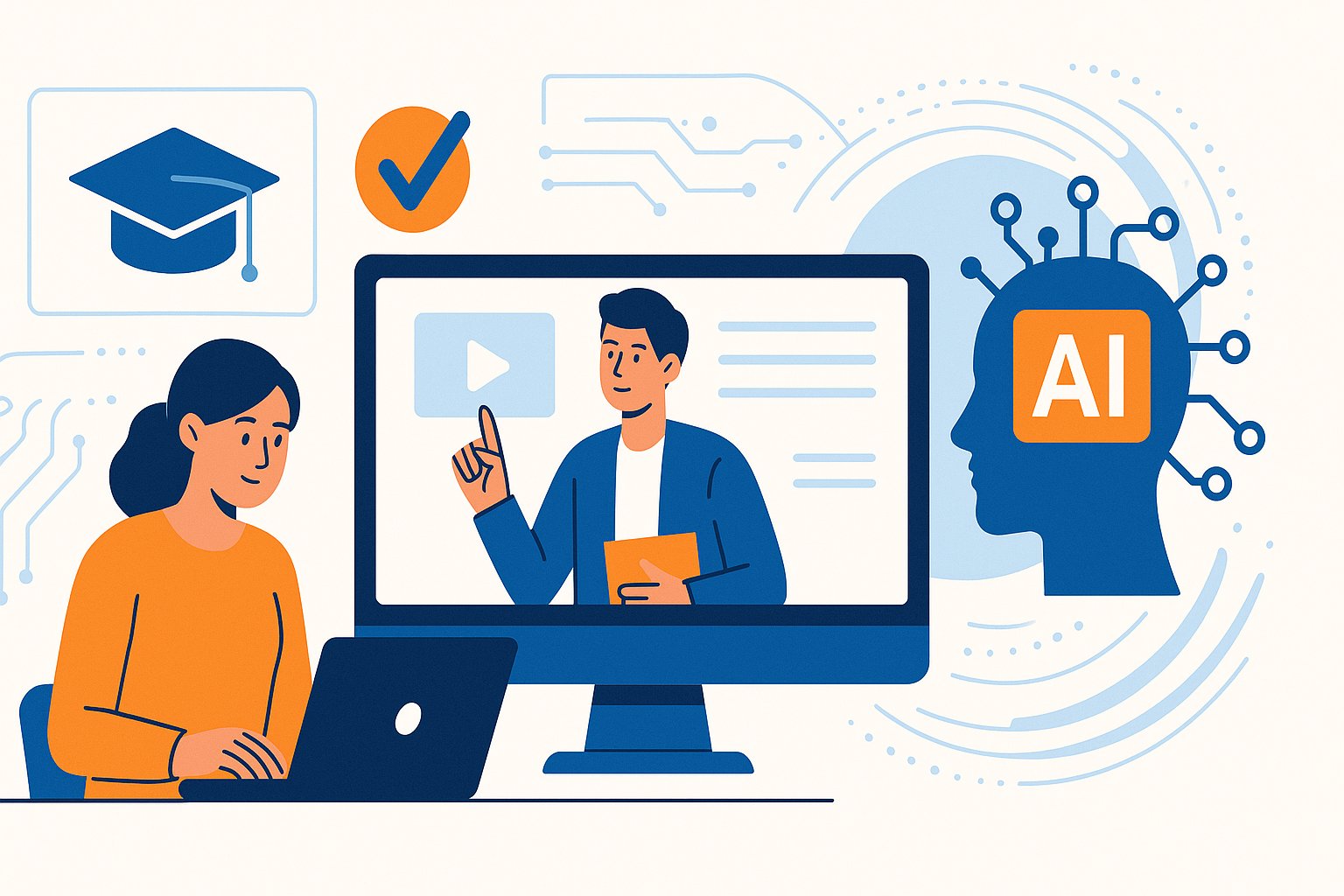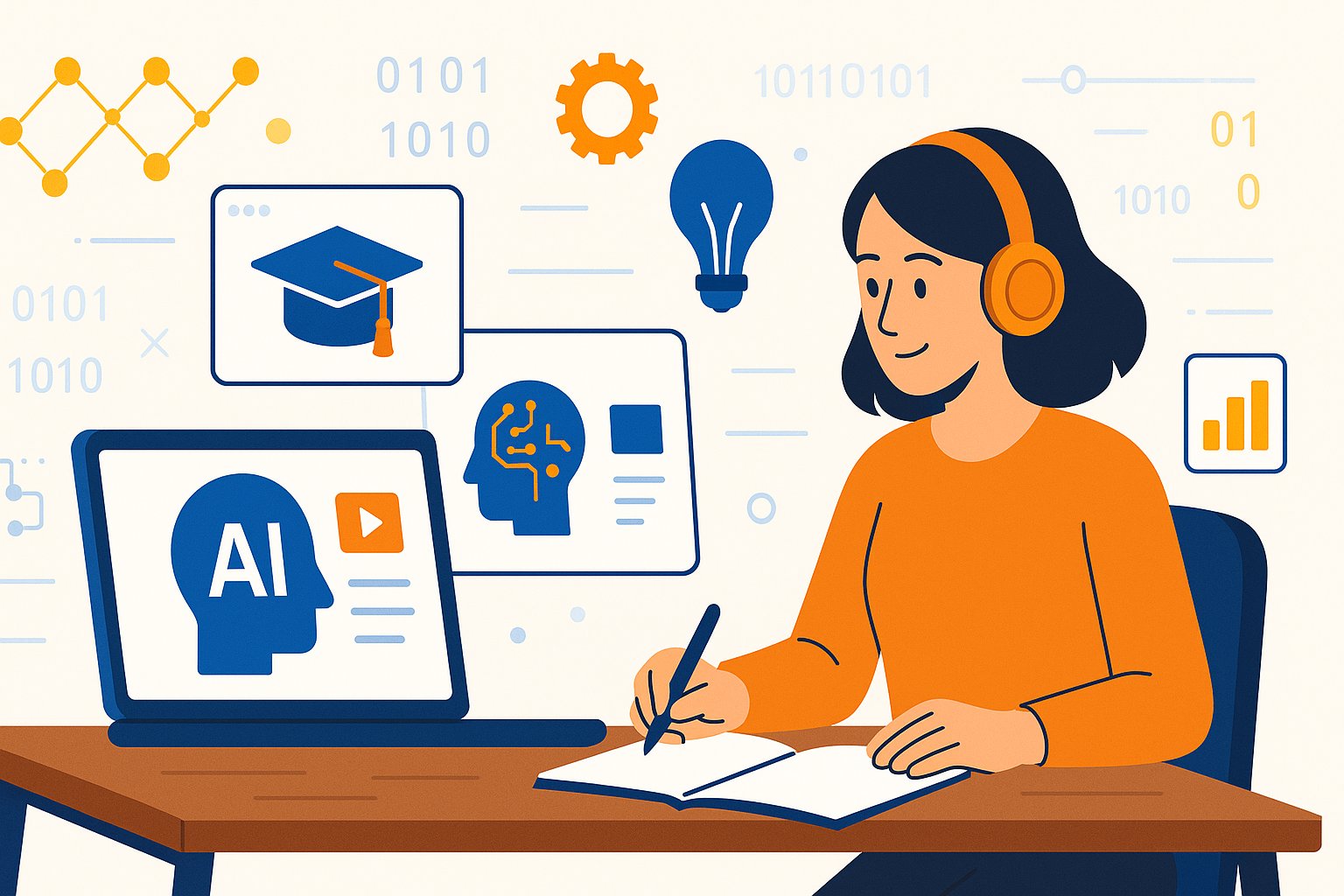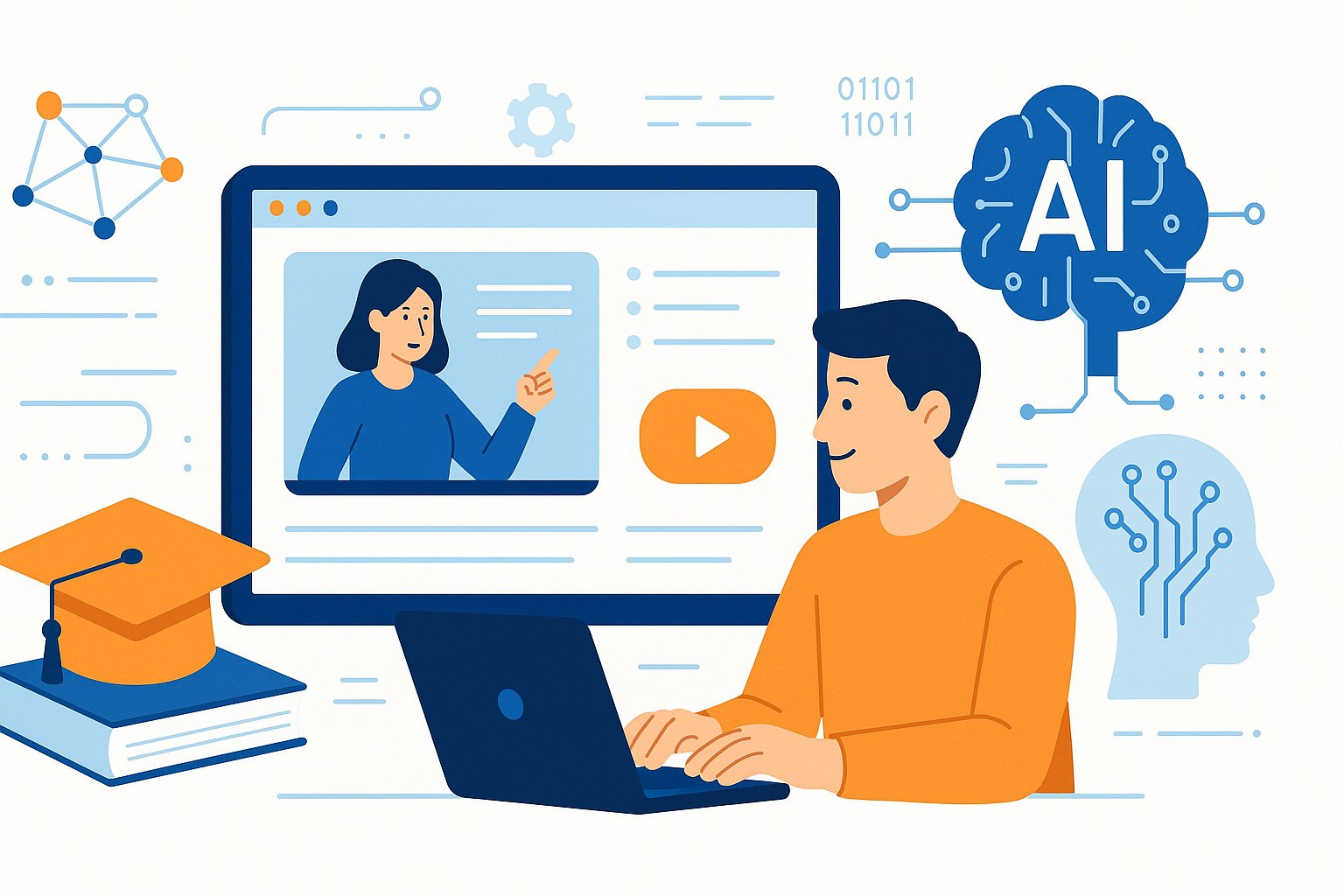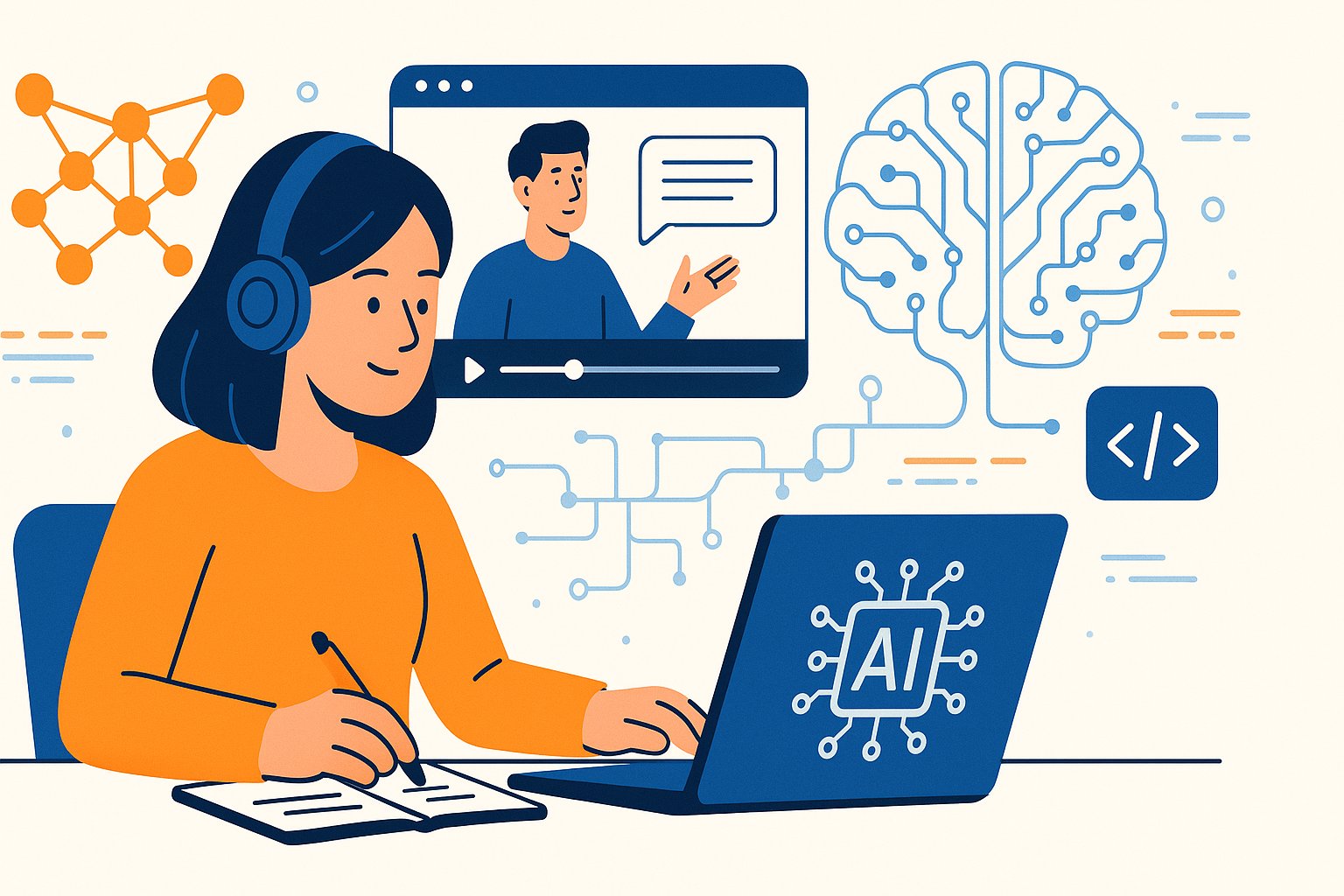10 AI Courses for Elementary School Teachers that You Should Know About in 2025
Explore the top 10 AI courses tailored for elementary educators in 2025. Learn how these programs can enhance teaching skills, integrate AI into the classroom, and prepare young learners for a tech-driven future. Perfect for staying ahead in education.

The integration of Artificial Intelligence (AI) into various professional fields has been swift and transformative. This shift is particularly urgent for Elementary School Teachers, who now face the dual challenge of preparing students for a future dominated by AI technologies while also ensuring their own skills remain relevant in a rapidly changing educational landscape. As AI continues to evolve, understanding its applications and implications becomes crucial for educators aiming to enhance their teaching methodologies and retain professional relevance. Upskilling in AI is not just a futuristic consideration—it’s a present necessity that can significantly impact job security and effectiveness for Elementary School Teachers professionals.
Why AI matters for Elementary School Teachers today
AI's significance in the educational sector is underscored by its growing adoption across industries. With statistics indicating that 69% of businesses are currently utilizing AI in some capacity, the educational field cannot afford to lag behind. For Elementary School Teachers, understanding AI goes beyond just integrating new technologies in the classroom; it involves preparing students for a future where AI is commonplace. This article aims to guide Elementary School Teachers professionals in identifying some of the best AI courses available, enabling them to make informed decisions about which programs will best enhance their skills and teaching methodologies.
The Growing Role of AI in Elementary School Teachers
AI is being utilized in the educational field in numerous innovative ways, transforming traditional teaching methods and administrative tasks. From automating routine operations like grading and attendance to enhancing decision-making processes through data analytics, AI has become an indispensable tool. Moreover, AI-powered platforms can offer personalized learning experiences by adapting content to meet the unique needs of each student. This not only optimizes learning outcomes but also allows teachers to focus on fostering critical thinking and creativity among students. As these technologies continue to reshape workflows, Elementary School Teachers who are proficient in AI are better positioned to improve educational outcomes and streamline their daily responsibilities.
Benefits of becoming an AI expert in Elementary School Teachers
For Elementary School Teachers professionals, gaining expertise in AI offers numerous advantages. It enhances their ability to engage students with innovative teaching techniques and provides tools to tailor educational experiences to individual learning styles. Additionally, AI proficiency empowers teachers to stay ahead of educational trends, ensuring that their teaching methods remain relevant and effective. By understanding AI, educators can also contribute to curriculum development that incorporates technology, equipping students with the skills needed to succeed in an AI-driven world. This article highlights and compares ten AI courses tailored for Elementary School Teachers, including the comprehensive offerings of CompleteAI Training, to assist educators in choosing the best path for their professional development.

Comparison: All AI Courses for Elementary School Teachers (Updated Q2' 2025)
| Course Name | Provider | Price | Key Topics | Pros | Cons | Best For |
|---|---|---|---|---|---|---|
| CompleteAI Training for Elementary School Teachers | Complete AI Training | $29/month (monthly), $8.25/month (annual) | Video Courses, Certifications, AI Tools, Industry News | Highest rating, Extensive range, Daily updates, Affordable | Subscription based | Elementary School Teachers |
| Generative AI for Educators and Teachers | Monsha | Free | Generative AI, Classroom Applications, Ethics, Privacy | Short, No prior experience needed, Free certification | Limited depth | General learners |
| AI for Educators | Microsoft | Free | AI Concepts, Language Models, Responsible AI | Comprehensive, Interactive, No prior experience needed | Certification details not specified | General learners |
| AI 101 for Teachers | Code.org | Free | AI Fundamentals, Societal Impacts, Ethics | In-depth, Certificate available, Reputable partners | Longer duration | General learners |
| AI for Teachers and Educators | Udemy | Free | AI Fundamentals, Classroom Applications, Ethics | Flexible format, No prior experience needed | Certification details not specified | General learners |
| An Essential Guide to AI for Educators | AI for Education | Free | ChatGPT, Prompt Engineering, Ethics | Hands-on, Practical resources, Ethical emphasis | Certification details not specified | General learners |
| Artificial Intelligence for Education: Exploring the Frontiers of ICT | Europass Teacher Academy (Erasmus+) | €480 - €580 | AI Tools, Lesson Integration, Ethics | Comprehensive, Hands-on, Erasmus+ support | Requires travel, Late registration fee | General learners |
| AI for Education | Khan Academy | Free | AI Fundamentals, Classroom Applications, Ethics | Trusted platform, Interactive modules | Certification details not specified | General learners |
| K-12: Building Custom GPTs to Automate Tasks | OpenAI Academy | Free | Custom GPTs, Task Automation, Lesson Planning | Tailored for K-12, No technical skills needed | No formal certification | General learners |
| Navigating the AI Policy Landscape in Schools | OpenAI Academy & Common Sense Media | Free | AI Policy, Ethics, Practical Considerations | Guidance on AI policy, Expert-led | Suited for administrators | General learners |
Understanding AI Training for Elementary School Teachers Professionals
With the increasing integration of artificial intelligence in educational settings, elementary school teachers are seeking effective ways to enhance their skills and understanding of AI. A variety of courses are available, each offering unique features and content tailored to educators. This article presents a detailed comparison of several AI training courses designed for elementary school teachers, providing insights into their offerings and suitability for different needs.
Course 1: CompleteAI Training
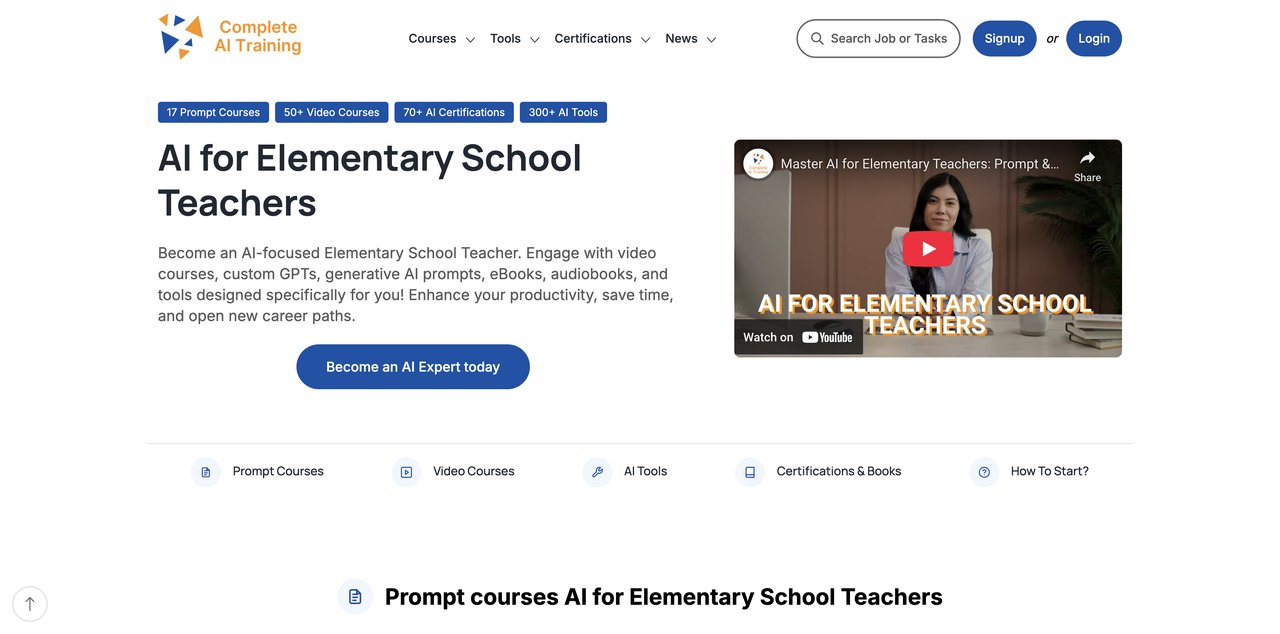
CompleteAI Training offers a comprehensive library of video courses and certifications specifically crafted for elementary school teachers. Subscribers have access to over 100 specialized courses that deliver complete AI education. The platform provides daily updates on the latest AI tools and news relevant to educators.
Key Topics Covered: AI fundamentals, classroom applications, AI tool updates
Target Audience and Skill Level: Elementary school teachers, beginners to intermediate
- Pros:
- Extensive range of AI courses and certifications
- Daily updates on relevant AI tools and news
- Affordable pricing, especially with annual billing
- Cons:
- Subscription-based model requires continuous commitment
Who Would Benefit Most: Educators seeking a thorough and regularly updated AI curriculum
Course 2: Generative AI for Educators and Teachers by Monsha
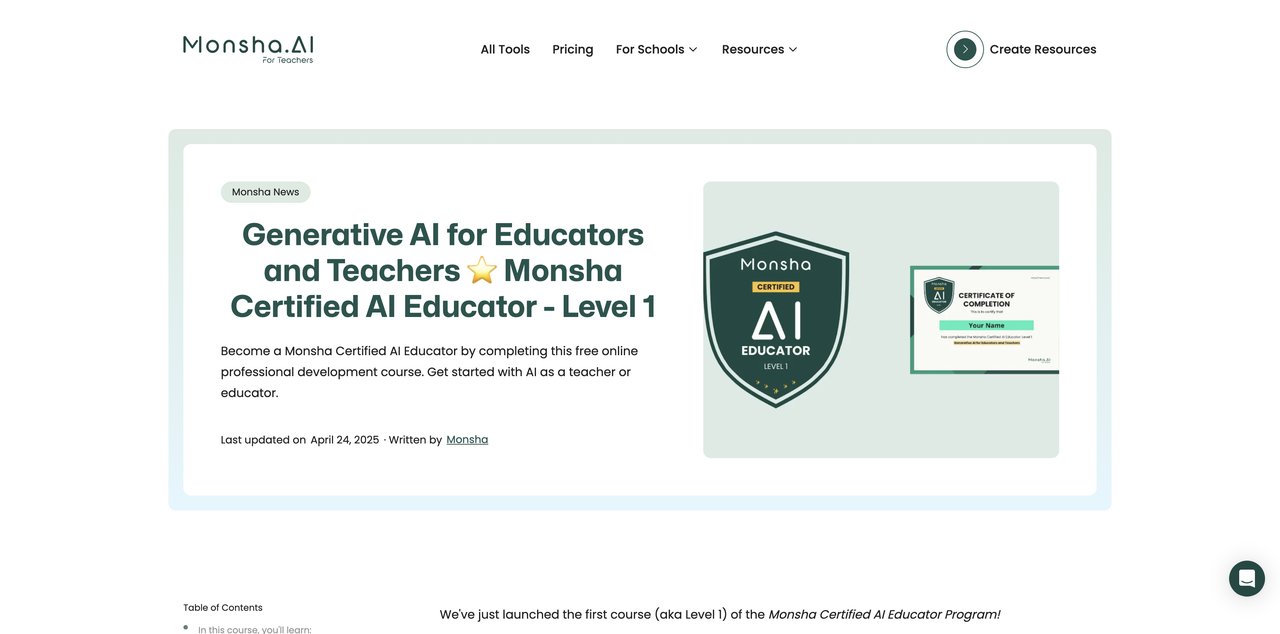
This course by Monsha provides a concise, self-paced introduction to generative AI, focusing on practical classroom applications and ethical best practices. Designed for busy educators, the course takes around 20-30 minutes and includes a badge and certificate upon completion.
Key Topics Covered: Generative AI basics, classroom strategies, ethical considerations
Target Audience and Skill Level: Busy elementary teachers, beginners
- Pros:
- Short and focused for time-constrained educators
- No prior AI experience needed
- Free certification included
- Cons:
- Limited depth due to short duration
Who Would Benefit Most: Teachers looking for a quick and practical introduction to AI
Course 3: AI for Educators by Microsoft
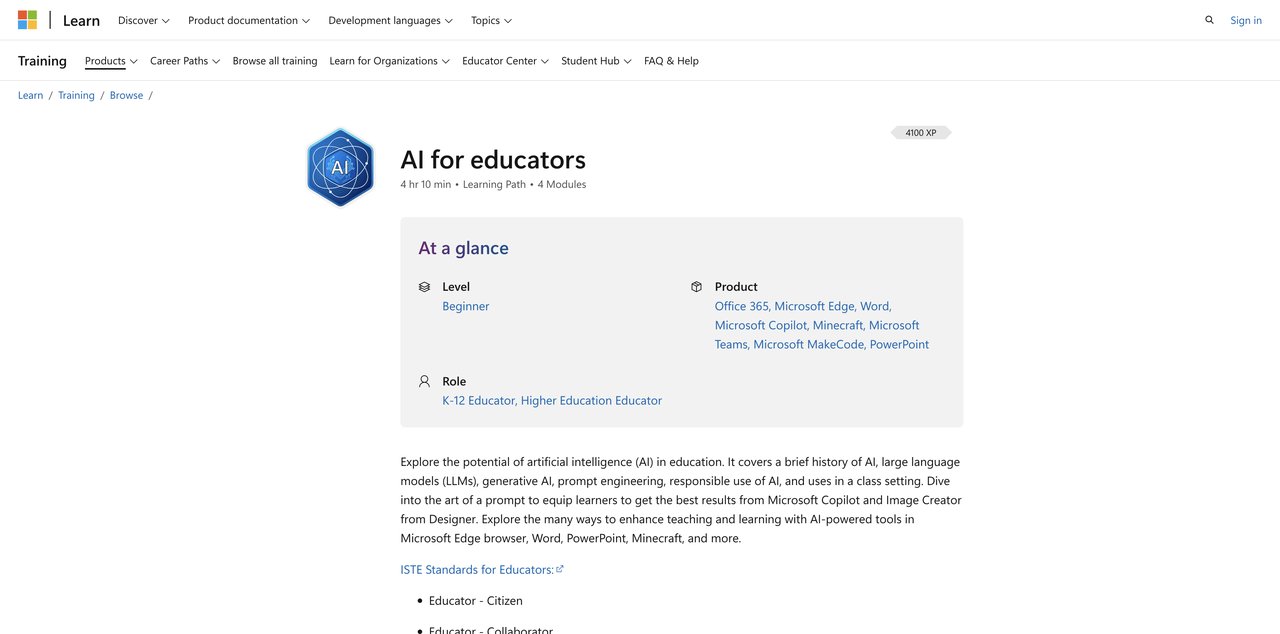
Microsoft's free, self-paced learning path offers a broad overview of AI concepts. It includes coverage of large language models, generative AI, and responsible AI use in education, making it suitable for K-12 educators.
Key Topics Covered: Large language models, generative AI, prompt engineering
Target Audience and Skill Level: K-12 educators, no prior experience required
- Pros:
- Comprehensive coverage of AI basics
- Interactive online modules
- No prior experience required
- Cons:
- Certification details not specified
Who Would Benefit Most: Educators seeking a broad understanding of AI concepts
Course 4: AI 101 for Teachers by Code.org
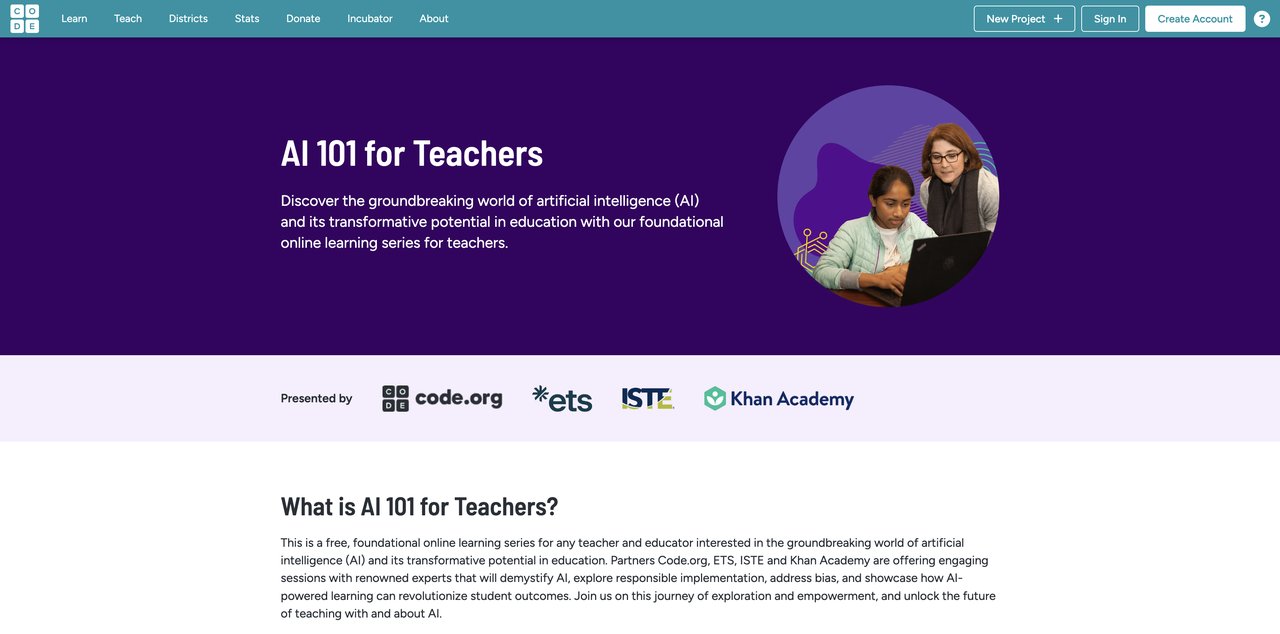
This free, self-paced course offers a detailed introduction to AI fundamentals, societal impacts, and ethical considerations. Developed with reputable partners, it covers about five hours of interactive content.
Key Topics Covered: AI fundamentals, societal impacts, ethical considerations
Target Audience and Skill Level: K-12 educators, beginners
- Pros:
- In-depth and well-rounded introduction
- Certificate of completion available
- Developed with reputable educational partners
- Cons:
- Longer duration may require more time commitment
Who Would Benefit Most: Educators seeking a comprehensive understanding of AI
Course 5: AI for Teachers and Educators by Udemy
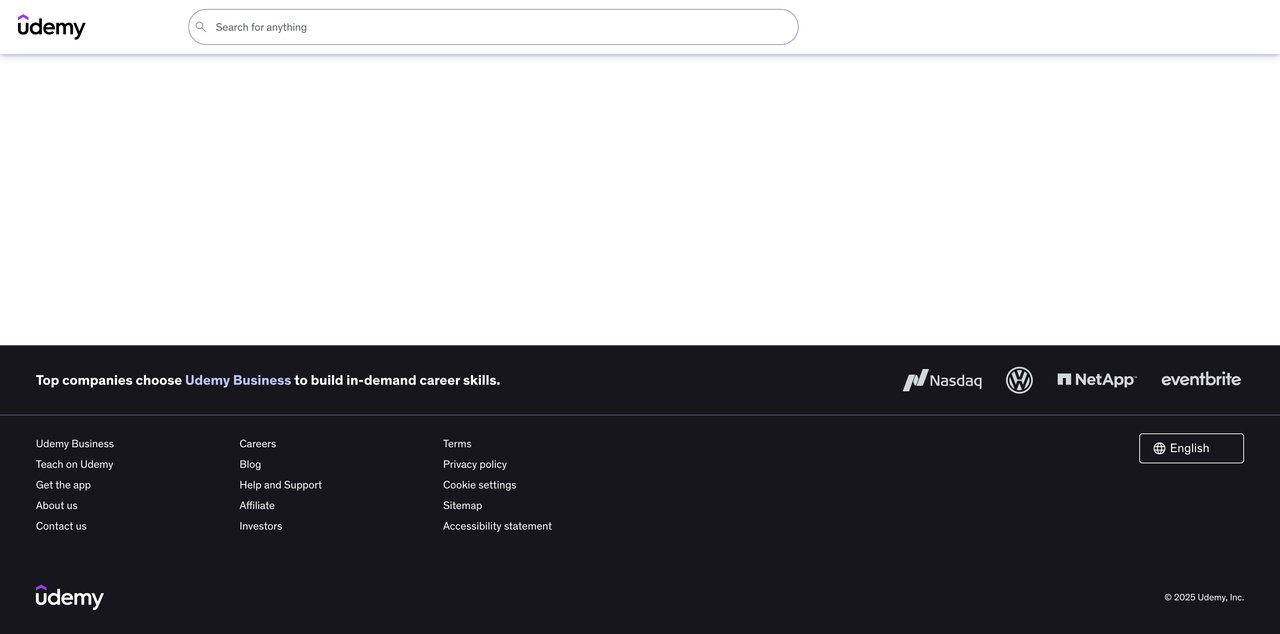
Udemy offers a flexible, self-paced course covering AI fundamentals and classroom applications. It provides practical strategies to integrate AI tools into teaching, enhancing efficiency and student engagement.
Key Topics Covered: AI fundamentals, classroom applications, ethical considerations
Target Audience and Skill Level: Educators at all levels, beginners
- Pros:
- Flexible learning format
- No prior AI experience needed
- Cons:
- Certification details not specified
Who Would Benefit Most: Teachers looking for practical strategies to use AI in the classroom
Course 6: An Essential Guide to AI for Educators by AI for Education
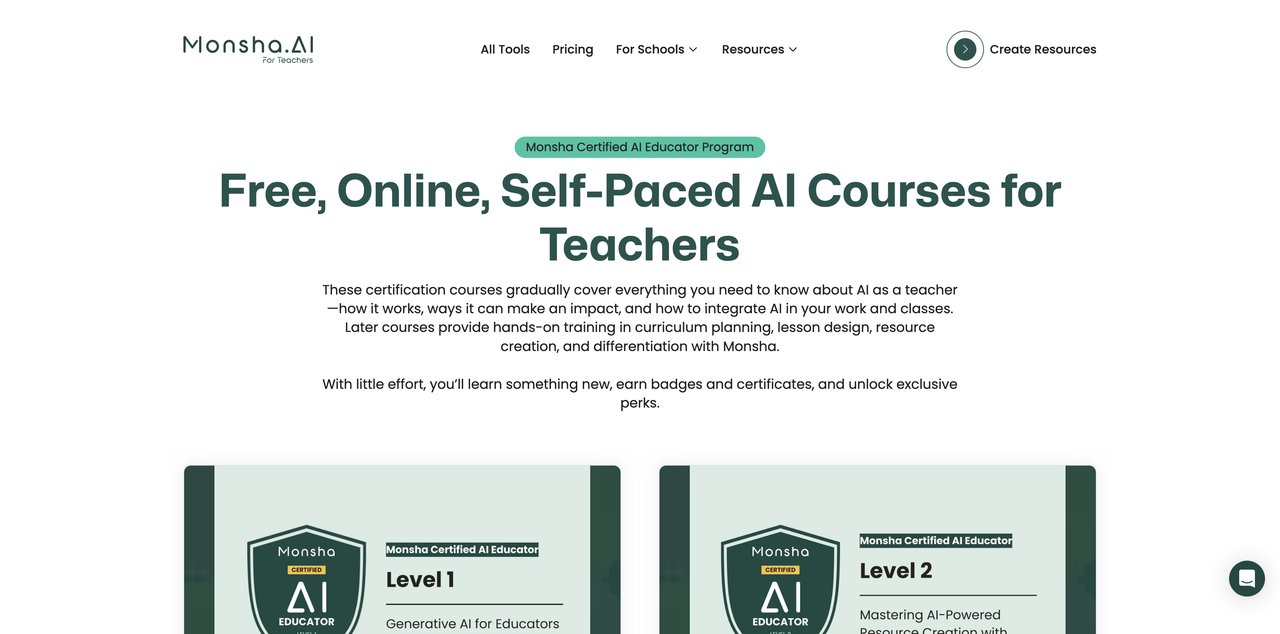
This two-hour self-paced course focuses on using ChatGPT and other AI tools. It includes prompt engineering, ethical considerations, and strategies to introduce AI concepts to students, along with access to a curated Prompt Library.
Key Topics Covered: ChatGPT applications, prompt engineering, ethical implications
Target Audience and Skill Level: Elementary educators, beginner to intermediate
- Pros:
- Hands-on with ChatGPT
- Includes practical resources like Prompt Library
- Ethical considerations emphasized
- Cons:
- Certification details not specified
Who Would Benefit Most: Teachers interested in practical AI tools and resources
Course 7: Artificial Intelligence for Education: Exploring the Frontiers of ICT by Europass Teacher Academy (Erasmus+)
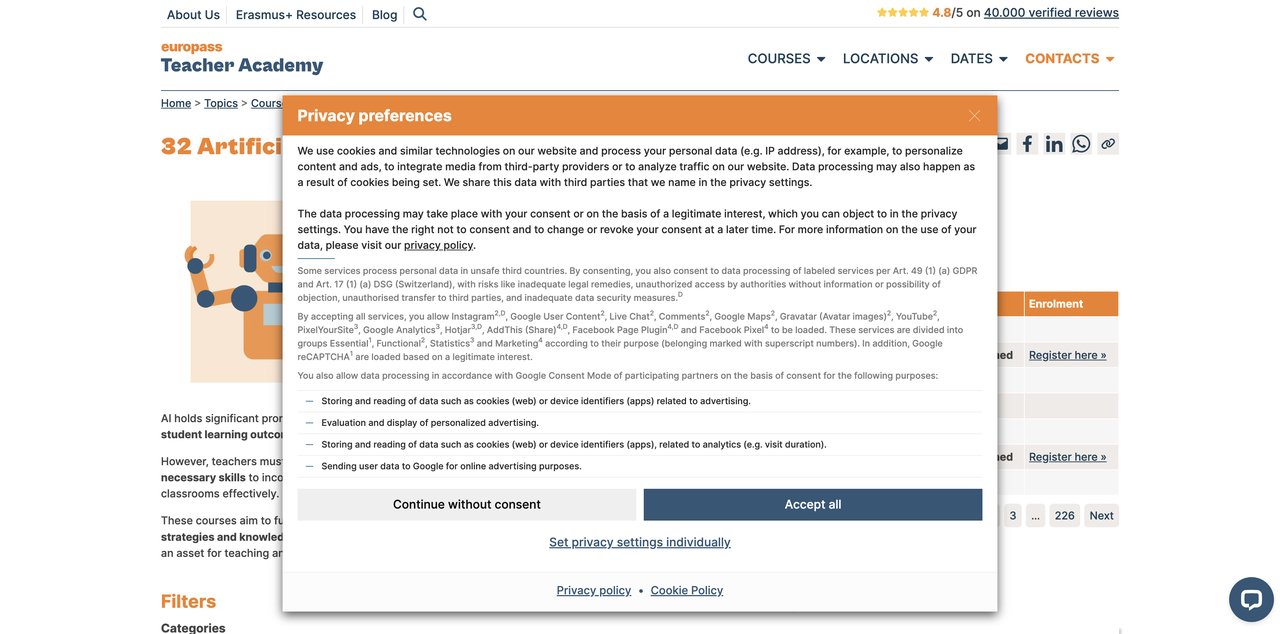
This one-week course combines hands-on experience with AI tools and strategies for lesson integration. It includes ethical discussions and cultural activities, and is supported by Erasmus+ funding, although travel may be necessary for in-person sessions.
Key Topics Covered: AI tool integration, ethical discussions, cultural components
Target Audience and Skill Level: Schoolteachers, including elementary, intermediate
- Pros:
- Comprehensive coverage of AI tools in education
- Practical, hands-on training
- Ethical and critical thinking components
- Cons:
- Requires travel for in-person sessions
- Late registration incurs fees
Who Would Benefit Most: Educators seeking immersive and practical AI training
Visit Europass Teacher Academy
Course 8: AI for Education by Khan Academy
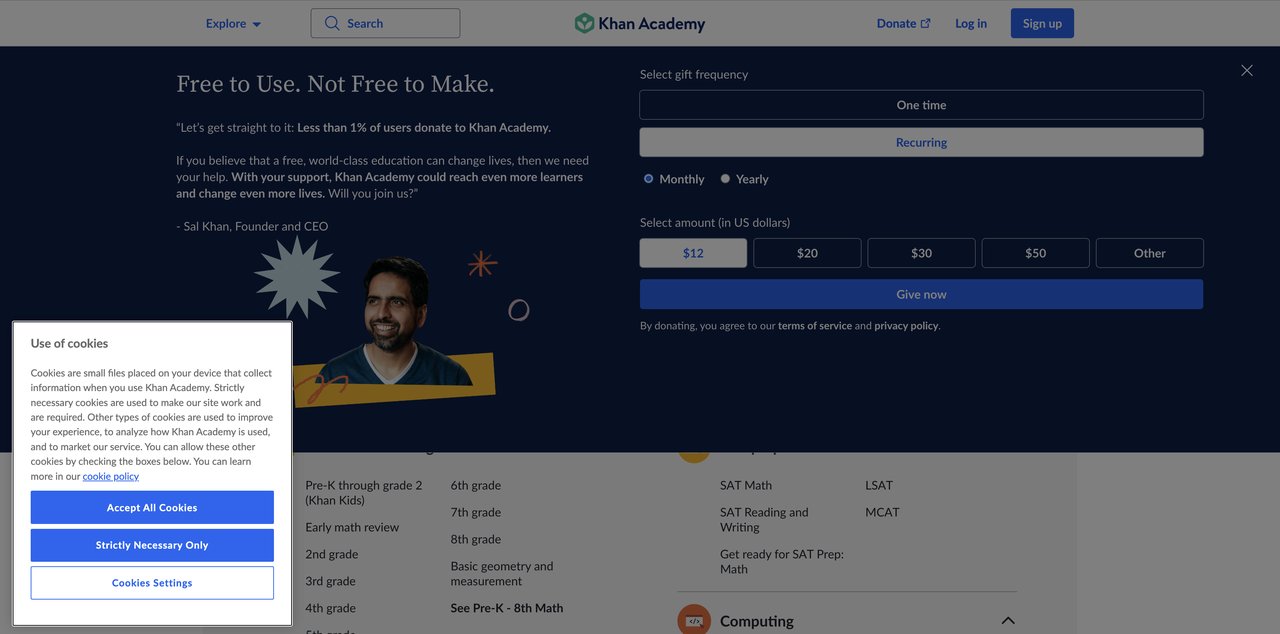
Khan Academy provides a self-paced course covering AI fundamentals and classroom applications. Designed for educators at all levels, it offers interactive modules to help understand and implement AI tools effectively in teaching.
Key Topics Covered: AI fundamentals, classroom applications, ethical issues
Target Audience and Skill Level: Educators at all levels, beginners
- Pros:
- Well-known platform with trusted content
- Interactive modules
- Cons:
- Certification details not specified
Who Would Benefit Most: Educators looking for a reliable introduction to AI
Course 9: K-12: Building Custom GPTs to Automate Tasks by OpenAI Academy
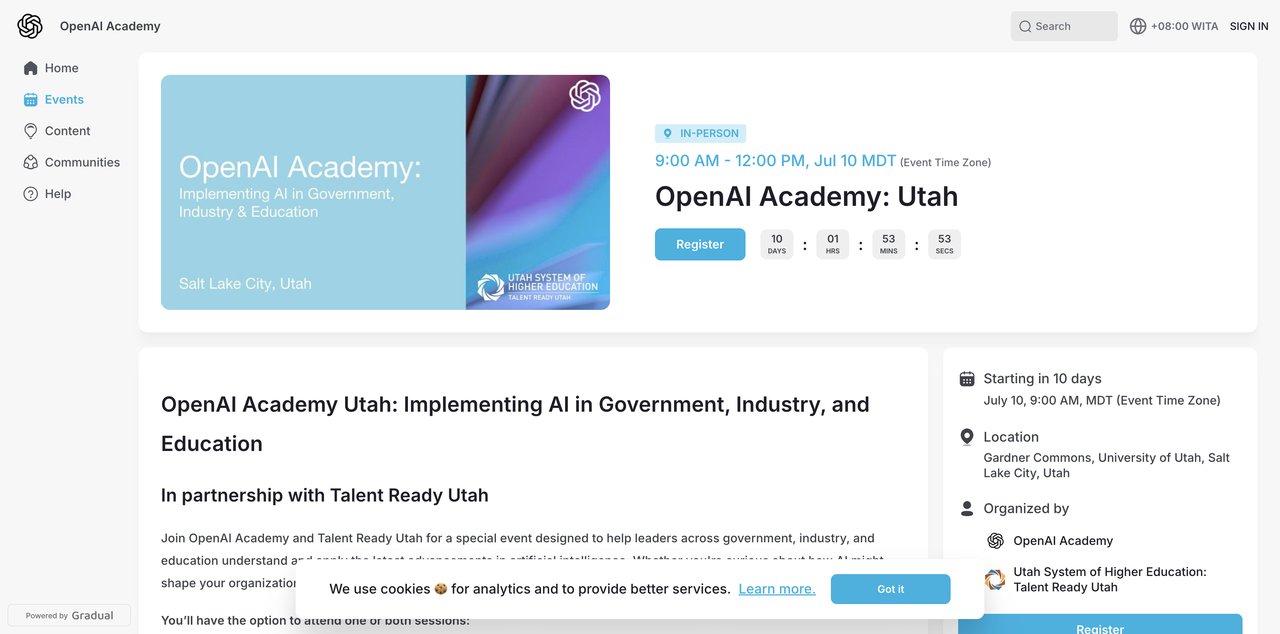
This course provides K-12 teachers with skills to create simple custom AI helpers to automate tasks. It requires no technical skills and focuses on practical applications to save time and enhance lesson planning.
Key Topics Covered: Custom GPTs, task automation, lesson planning
Target Audience and Skill Level: K-12 educators, including elementary, beginners
- Pros:
- No technical skills needed
- Practical applications for teachers
- Cons:
- No formal certification offered
- Content primarily in English
Who Would Benefit Most: Teachers looking to automate classroom tasks
Course 10: Navigating the AI Policy Landscape in Schools by OpenAI Academy & Common Sense Media
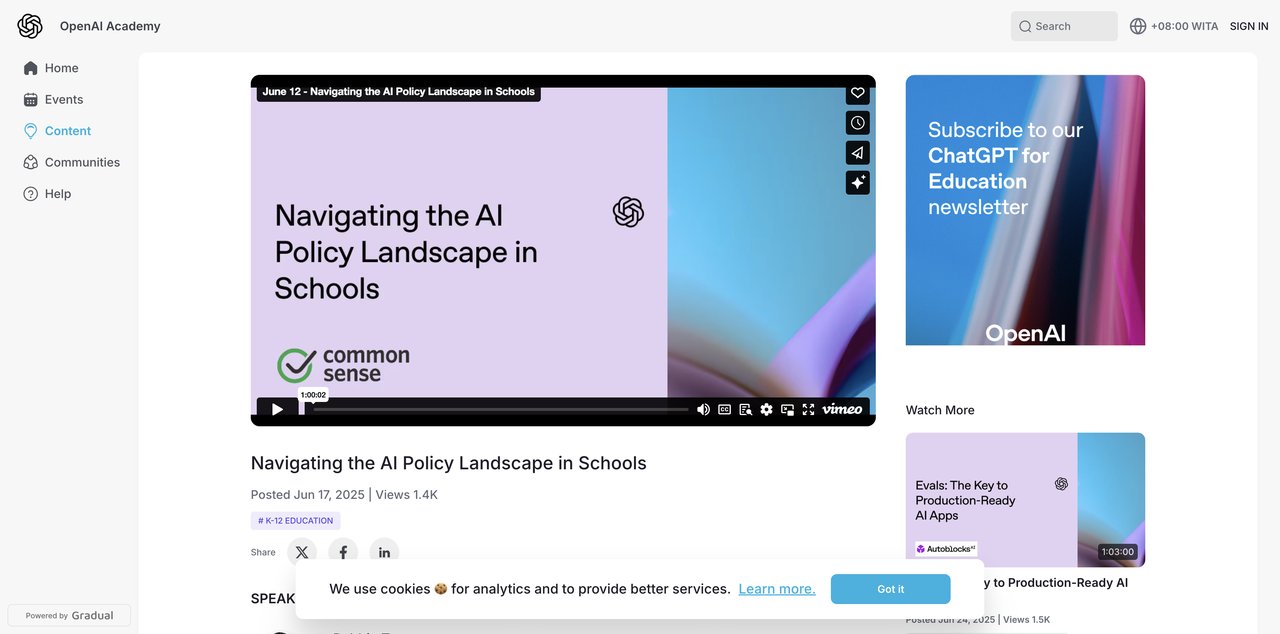
This session is aimed at K-12 educators, especially in leadership roles, covering how to establish and align AI policies in schools. It provides insights into the ethical and practical considerations of AI use in educational settings.
Key Topics Covered: AI policy establishment, ethical considerations, school alignment
Target Audience and Skill Level: School administrators and leaders, intermediate
- Pros:
- Guidance on AI policy in schools
- Led by experts from Common Sense Media
- Cons:
- More suited for administrators than classroom teachers
Who Would Benefit Most: School leaders seeking to develop AI policies
Overall Recommendations for Elementary School Teachers
Choosing the right AI course depends on your goals, time availability, and desired depth of knowledge. For teachers looking for a comprehensive and regularly updated curriculum, CompleteAI Training offers a robust selection of courses at an affordable price. Teachers who prefer a quick introduction to AI might benefit from the brief course by Monsha or the interactive modules by Khan Academy. Educators seeking an immersive experience with practical applications may find the Europass Teacher Academy course valuable, though it requires travel. For those interested in policy development, the session by OpenAI Academy and Common Sense Media offers essential insights for school leaders. Ultimately, the best choice will align with your specific educational environment and professional development goals.

